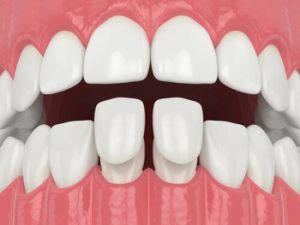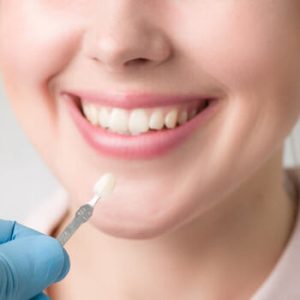In today’s world, a dazzling smile is often considered a ticket to personal and professional success. Dental veneers, thin shells of porcelain or composite resin attached to the front of your teeth, have become popular as a quick fix to achieving that picture-perfect smile. Whether you’re considering veneers for cosmetic reasons or to correct minor dental imperfections, you’re likely asking yourself one key question: Are veneers permanent? Understanding the long-term implications of getting dental veneers is crucial for making an informed decision, especially given the investment of time, money, and, yes—even your natural tooth structure.
This article aims to provide detailed insight into the permanence of dental veneers. We’ll delve into the lifespan of different types of veneers, what maintenance they require, and their impact on your natural teeth. Armed with this information, you’ll be better prepared to consult your dental professional about whether veneers are the right long-term solution.
What Are Dental Veneers?
Types of Materials Used
Porcelain Veneers
Porcelain veneers are the most popular type, renowned for their durability and natural-looking appearance. They are resistant to stains and replicate the light-reflecting properties of natural teeth, making them a preferred choice for those looking to make a lasting change.
Composite Resin Veneers
Composite veneers are usually less expensive than their porcelain counterparts but are more susceptible to staining and have a shorter lifespan. They can usually be applied in a single appointment and are easier to repair if damaged.
Typical Use Cases
Tooth veneers are a popular choice for a variety of reasons:
- Cosmetic Enhancement: For teeth whitening and to improve the shape or size of teeth.
- Damage Repair: To cover crooked teeth or chipped teeth.
- Alignment and Spacing: To close small gaps or correct minor misalignment.
Veneers are not just a cosmetic luxury; they also offer functional benefits. However, their application is an irreversible process that requires careful consideration, which makes understanding their permanence all the more crucial.
The Procedure of Applying Veneers
Getting dental veneers is like planning a road trip. You don’t just hop in the car and go; you need a map, a well-tuned vehicle, and some roadside assistance, just in case. Here’s how the journey to getting veneers generally goes down
Initial Consultation
Your journey begins with an initial consultation with a dental professional. This meeting evaluates your dental health, discusses your cosmetic goals, and finds that veneers are the right treatment for you. X-rays may be taken, and in some cases, impressions of your teeth and mouth will be made as part of the evaluation process.
Tooth Preparation
Once you and your dentist decide that veneers are the way to go, your teeth will need some prep work. This usually involves extracting a small amount of tooth enamel to make space for the veneers. Don’t worry; you’ll get local anaesthesia to keep things comfortable.
The Final Stretch: Veneer Placement
When a dental veneer is ready, it’s time for the big moment. Your cosmetic dentist will place them on your teeth to check their fit and appearance. If everything looks good, the permanent veneers will be bonded in place. A bit of polishing, and voila! You’ve reached your destination—a brand-new smile!
Post-Trip Care: Maintenance
Your journey is still ongoing even after the veneers are securely in place. Regular check-ups, diligent oral hygiene, and perhaps some minor adjustments will keep your veneers—and your smile—looking their best for years to come.
So, as you can see, getting dental veneers is not just a “pop into the clinic and you’re done” affair. It’s a thoughtful process, but with the right preparation and care, the result can be a smile you’re proud to show off.
Are Veneers Permanent? The Lifespan Explained
When considering dental veneers, one of the most pivotal questions is their permanency. While veneers are designed to be a lasting solution to various dental concerns, the notion that they are “permanent” is often misunderstood. A veneer’s life expectancy isn’t infinite, and its durability depends on various factors, including the material used, the dentist’s skill, how well they are maintained, and your overall dental health.
Lifespan of Different Types of Veneers
Porcelain Veneers
These are the gold standard in dental veneers, known for their resilience and natural appearance. Porcelain veneers can stay durable for 10 to 15 years and, in some cases, even longer. They are resistant to stains and can uphold everyday wear and tear remarkably well, making them a preferred choice for those seeking a long-term solution.
Composite Resin Veneers
Composite resin veneers generally have a shorter life expectancy, ranging from 5 to 8 years. Although less expensive upfront, their susceptibility to staining and general wear may require more frequent replacement, which can be a factor in long-term costs.
Factors Affecting Longevity
- Oral Hygiene: The importance of a consistent oral hygiene routine cannot be overstated. Regular brushing and flossing help maintain the integrity of the veneers and the health of the natural teeth behind them.
- Diet and Lifestyle Choices: Consumption of staining foods and beverages like coffee, tea, or red wine and habits like smoking can lead to discolouration.
- Regular Dental Visits: Consistent dental check-ups facilitate professional cleanings and allow your dentist to monitor the state of your veneers and underlying teeth, making timely interventions possible.
- Physical Impact: Veneers are durable but not indestructible. Engaging in activities that could result in mouth trauma, such as contact sports without a mouth guard, can reduce their lifespan.
In conclusion, while veneers can offer a durable and long-lasting solution for various dental imperfections, they are not “permanent” in the lifelong sense. However, with proper care and maintenance, newly veneered teeth can serve you well for many years, making them a semi-permanent fixture that significantly enhances the quality of your smile.
Maintenance of Dental Veneers
If you’ve invested in dental veneers, you’ll want to ensure they last as long as possible while retaining their aesthetic appeal. The longevity of your veneers can be greatly influenced by the kind of care and maintenance they receive. In this regard, while veneers are designed to be durable, they are not entirely maintenance-free.
Daily Cleaning Routines
Brushing
It’s essential to clean your teeth at least twice a day using non-abrasive fluoride toothpaste. A soft-bristled toothbrush is ideal, as it is gentle on both the veneers and the gum line.
Flossing
Regular flossing is equally essential to remove debris and plaque from between the teeth, preventing potential decay and gum disease that could undermine your veneers.
Mouthwash
Antiseptic mouthwash can help kill bacteria and maintain oral hygiene, but consult your dentist for a safe veneer recommendation.
Regular Dental Check-Ups
Scheduled dental visits are vital for the maintenance of your veneers. These appointments allow for professional cleaning of worn teeth and allow your dentist to inspect the veneers for any signs of damage or wear that could require early intervention.
What to Avoid
- Staining Foods and Drinks: While porcelain veneers are relatively stain-resistant, composite veneers are not. Even with porcelain, the adhesive used can be susceptible to discolouration.
- Chewing Hard Objects: Biting down on hard objects like ice, pens, or hard candy can chip or crack veneers.
- Grinding and Clenching: A night guard may be recommended to protect your veneers from unnecessary wear if you have a habit of teeth grinding.
Immediate Action on Damage
Maintaining dental veneers requires a conscientious approach to oral hygiene and regular dental check-ups. While they may not be “permanent,” they can offer a long-lasting and radiant smile with proper care.
Common Myths and Misconceptions
You might’ve heard many things about dental veneers that make you hesitate. “They look fake,” or “Once you get them, you’re set for life,” right? Let’s clear the air and break down some of these myths!
Myth 1: Veneers Look Unnatural
Reality:
So, first off, do veneers look unnatural? No, that’s old news. Today’s dental tech lets dentists craft veneers that are practically twins with your natural teeth in colour, shape, and even how they catch the light. Find a dentist who knows their stuff; no one can tell you’ve had any work done.
Myth 2: Veneers are a One-Time Investment
Reality:
And what about this idea that veneers are a one-and-done deal? While it’s true they can last a good while, they’re not like a tattoo or a diamond—forever is stretching it. If you go top-of-the-line with porcelain, you could look at 10 to 15 years of wear. But if you opt for composite resin, you might revisit your dentist for a touch-up in about 5 to 8 years. Much depends on how well you look after them and your dental health.
Myth 3: Veneers Require No Maintenance
Reality:
To maintain their appearance and longevity, veneers require the same level of upkeep as your natural teeth, including regular brushing, flossing, and dental check-ups.
Myth 4: Veneers Can Be Applied to Any Teeth
Reality:
Only some people are the right candidates for veneers. Issues like severe misalignment or existing gum disease must be addressed before veneers can be considered.
Myth 5: Veneers Make Teeth Invulnerable to Decay
Reality:
The tooth beneath a veneer is still susceptible to decay. Poor oral hygiene can lead to dental problems that could require removal and replacement of the veneer, like tooth decay.
Myth 6: Veneers are Only for Cosmetic Purposes
Reality:
While veneers are commonly used for cosmetic improvements, they can also serve functional needs like protecting a damaged tooth surface.
Myth 7: Veneers are Painful to Get
Reality:
The procedure for getting veneers is generally not painful, thanks to local anaesthesia. Some sensitivity post-procedure is common but temporary.
Myth 8: All Veneers are Created Equal
Reality:
The quality of veneers can vary significantly depending on the skill of the dentist and the quality of the laboratory used to create them. It’s essential to do your research and consult multiple professionals if possible.
Conclusion
Understanding the procedure and maintenance requirements and debunking common myths can prepare you for what lies ahead. It’s crucial to consult a reputable dental professional who can guide you through this journey to achieve the best results tailored to your specific needs.
Don’t let myths and misconceptions hold you back. Contact the experienced team at Casey Dentists today for a consultation that can provide personalised advice on whether veneers are the right option for you. Call us now at 07 4801 7035 to schedule your appointment.
References:
https://www.colgate.com/en-us/oral-health/veneers/dental-veneers-pros-and-cons
https://www.medicalnewstoday.com/articles/dental-veneers



